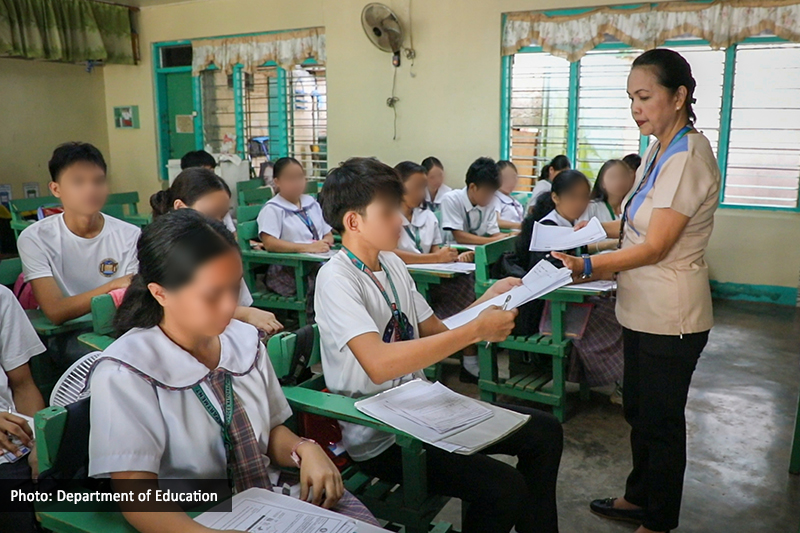Access to quality higher education is essential for young people to have a bright future. Quality and cost often go hand in hand, making opportunities more inequitable particularly for the less privileged. Working professionals also need to continuously acquire new knowledge relevant to their jobs and learn new skills to thrive in an increasingly competitive labor market. Apart from quality and cost, time is a major constraint for full-time workers as full-time schooling means a reduction in their income if they are not allowed to go on study leave with pay.
A new mode of delivering education called Massive Open Online Courses or MOOCS, which capitalizes on modern communications particularly the Internet and interactive learning systems, looks promising in expanding educational opportunities and addressing cost, quality, and time considerations.
In a recent education experts’ forum last October 21 at the Romulo Hall of the NEDA sa Makati Building in Makati City, educators from major public and private education institutions in the country examined the potential benefits of the Philippines from MOOCs should they be adopted and scaled up. The forum was organized by the education team of state think tank Philippine Institute for Development Studies (PIDS) headed by Senior Research Fellow Aniceto Orbeta and Senior Research Consultant Vicente Paqueo, as part of a joint project between the PIDS and the Commission on Higher Education.
A recent development in distance education, MOOCs differ from earlier forms such as correspondence courses, broadcast courses and e-learning with its creative course materials, interactive features, open access policy, and mass distribution scheme.
MOOCs are designed in such a way that learners get direct feedback on their answers and can interact with other learners taking the same online course in other parts of the world.
Many MOOCs are offered for free by nonprofit providers such as Coursera which was founded by Stanford University professors. Coursera offers diverse courses in engineering, humanities, medicine, biology, social sciences, mathematics, business, and computer science. Another nonprofit provider is eDx established by the Massachusetts Institute of Technology and Harvard University.
Some universities in the Philippines have started to experiment on using MOOCs as an addition to classroom instruction. The “blended MOOCs” approach has been helpful in enhancing the learner’s understanding of lessons, said Dr. Alita Roxas of Mindanao State University.
Presenting from Washington, D.C. via video conferencing, Dr. Marito Garcia, former lead economist of the World Bank, noted that MOOCs can give someone an edge in the labor market by taking courses that belong to in-demand occupations. Universities and other education providers can develop customized MOOCs on sought-after jobs. MOOCs can therefore function not only as additional learning tools and content in the classroom setting but as an avenue to gain professional aptitude.
The forum participants felt the concept is a good one but a thorough study is needed to determine its feasibility in the local context. Dr. Emmanuel de Dios of the UP School of Economics noted the still prevailing issues of IT access and connectivity in the Philippines, which clearly is a major deterrent in adopting MOOCs. Other participants noted that as the available MOOCs are designed overseas, they may not be suited to the local context. There is also a need to consider the different learning levels of students, they said.
A new mode of delivering education called Massive Open Online Courses or MOOCS, which capitalizes on modern communications particularly the Internet and interactive learning systems, looks promising in expanding educational opportunities and addressing cost, quality, and time considerations.
In a recent education experts’ forum last October 21 at the Romulo Hall of the NEDA sa Makati Building in Makati City, educators from major public and private education institutions in the country examined the potential benefits of the Philippines from MOOCs should they be adopted and scaled up. The forum was organized by the education team of state think tank Philippine Institute for Development Studies (PIDS) headed by Senior Research Fellow Aniceto Orbeta and Senior Research Consultant Vicente Paqueo, as part of a joint project between the PIDS and the Commission on Higher Education.
A recent development in distance education, MOOCs differ from earlier forms such as correspondence courses, broadcast courses and e-learning with its creative course materials, interactive features, open access policy, and mass distribution scheme.
MOOCs are designed in such a way that learners get direct feedback on their answers and can interact with other learners taking the same online course in other parts of the world.
Many MOOCs are offered for free by nonprofit providers such as Coursera which was founded by Stanford University professors. Coursera offers diverse courses in engineering, humanities, medicine, biology, social sciences, mathematics, business, and computer science. Another nonprofit provider is eDx established by the Massachusetts Institute of Technology and Harvard University.
Some universities in the Philippines have started to experiment on using MOOCs as an addition to classroom instruction. The “blended MOOCs” approach has been helpful in enhancing the learner’s understanding of lessons, said Dr. Alita Roxas of Mindanao State University.
Presenting from Washington, D.C. via video conferencing, Dr. Marito Garcia, former lead economist of the World Bank, noted that MOOCs can give someone an edge in the labor market by taking courses that belong to in-demand occupations. Universities and other education providers can develop customized MOOCs on sought-after jobs. MOOCs can therefore function not only as additional learning tools and content in the classroom setting but as an avenue to gain professional aptitude.
The forum participants felt the concept is a good one but a thorough study is needed to determine its feasibility in the local context. Dr. Emmanuel de Dios of the UP School of Economics noted the still prevailing issues of IT access and connectivity in the Philippines, which clearly is a major deterrent in adopting MOOCs. Other participants noted that as the available MOOCs are designed overseas, they may not be suited to the local context. There is also a need to consider the different learning levels of students, they said.












